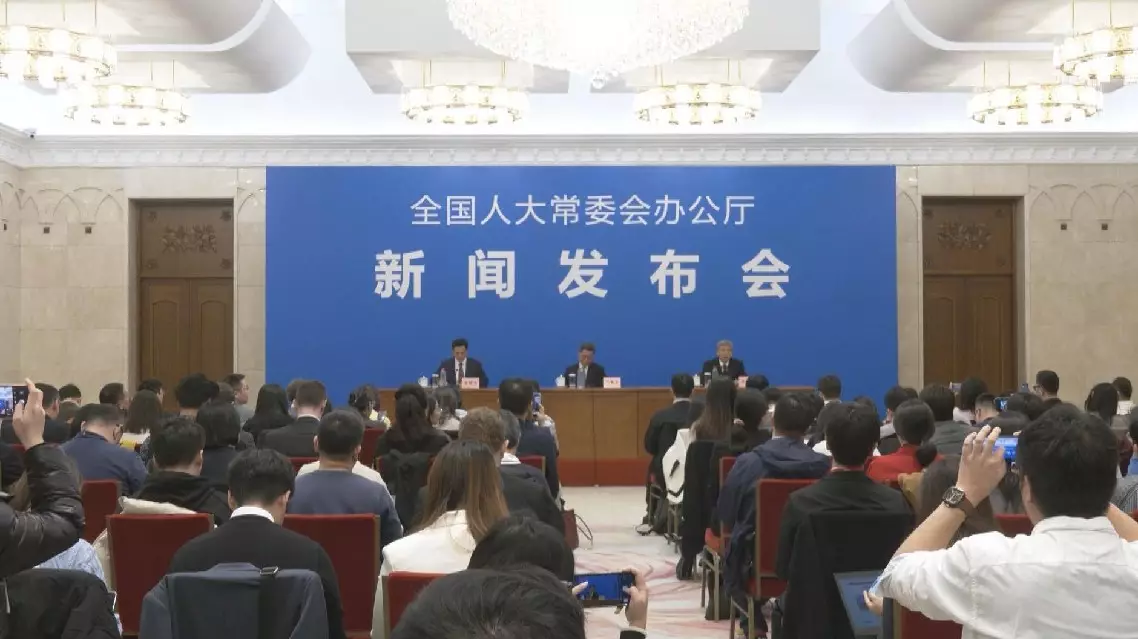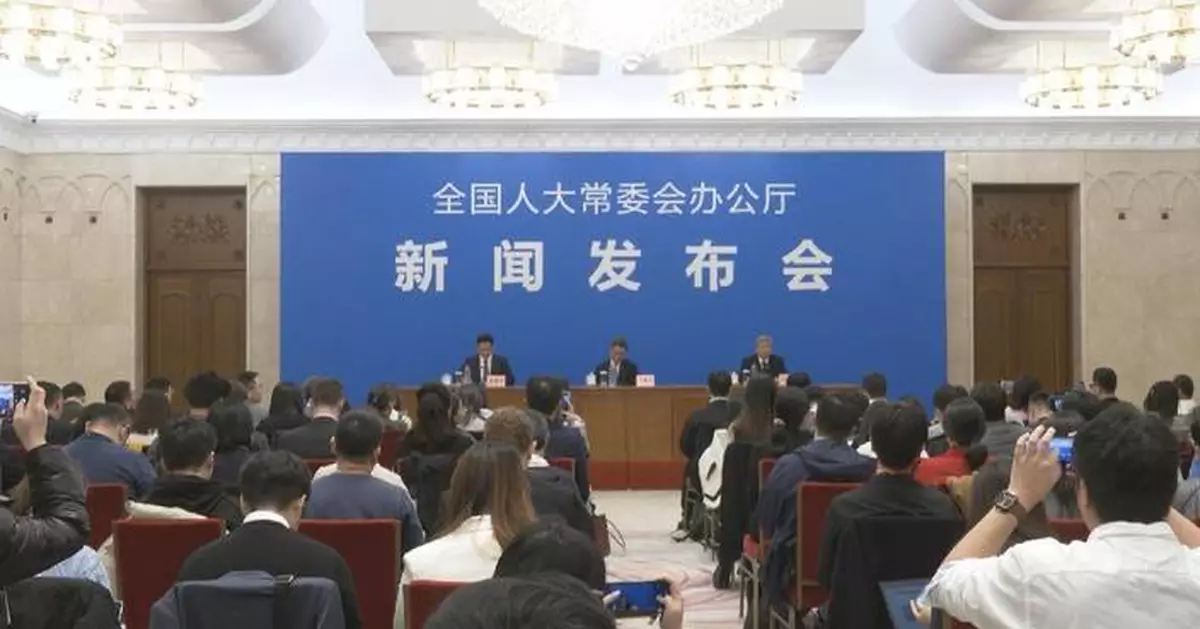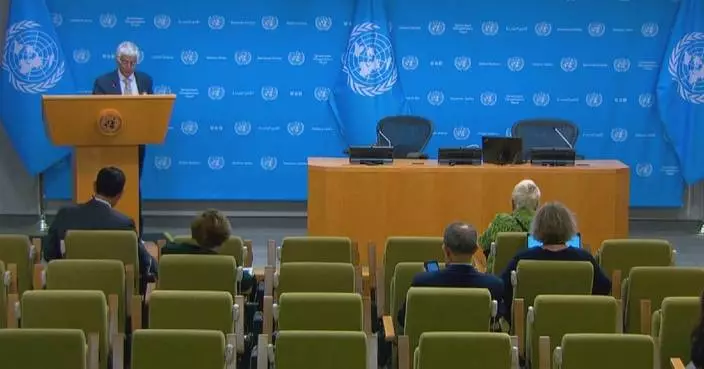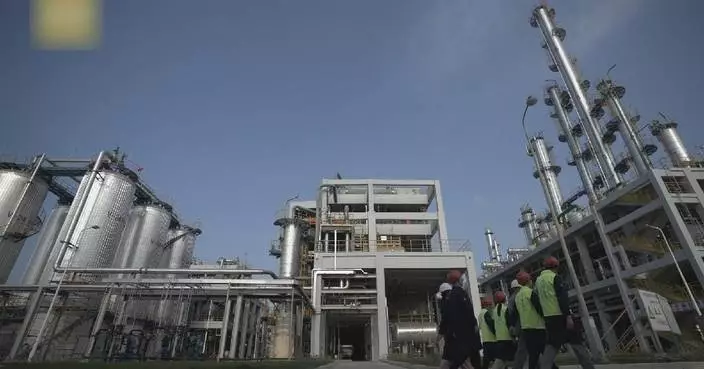Chinese lawmakers have approved a State Council bill on raising the ceiling on local government debt by 6 trillion yuan (about 840 billion U.S. dollars) to replace existing hidden debts, according to a press conference held on Friday.
Xu Hongcai, deputy director of the financial and economic affairs committee of the National People's Congress (NPC), China's highest organ of state power, revealed the approval to the media after the Standing Committee of the 14th NPC concluded its 12th session in Beijing on Friday.
Under the new arrangement, the debt ceiling for special local government debt will be increased to 35.52 trillion yuan from 29.52 trillion yuan by the end of 2024.
Also starting from 2024, China will set aside 800 billion yuan from each year's new special-purpose bonds for local governments for five consecutive years, thereby providing debt relief to replace 4 trillion yuan of hidden debts, according to Minister of Finance Lan Fo'an.
The new measures will add a combined 10 trillion yuan to China's debt relief resources, Lan told the press conference.
"As a result, the amount of hidden debts that China's local governments need to deal with by 2028 is expected to drop from 14.3 trillion yuan to 2.3 trillion yuan, and the amount per year on average is expected to fall from 2.86 trillion yuan to 460 billion yuan, so the debt pressure will be greatly reduced to less than one sixth. According to our calculation, local governments will be completely able to rely on their own efforts to tackle the lowered debt pressure, and some local governments will even be able to do it easily," said the minister.
"We will intensively arrange 8.4 trillion yuan of debt relief resources in three years, which will significantly decrease the scale of hidden debts to be handled by local governments in the following several years, so as to take the burden off the local governments. In the meantime, the interest rate of statutory debts is much lower than that of the hidden debts, so after replacing the existing hidden debts, the interest expenditures of local governments will be greatly reduced, by about 600 billion yuan in five years according to our calculation. The local governments can then save relevant resources and spend them on promoting development, improving the people's wellbeing, and intensifying support for investment, consumption, scientific and technological innovation, and other aspects. The quality of financial assets can also be improved, so that financial institutions are able to increase credit supplies, and thus better benefit the real economy," said Lan.
Meanwhile, the 2 trillion yuan of hidden debts resulting from housing improvement projects in run-down areas due by 2029 and beyond will be paid in accordance with the original contracts.

China's top legislature approves bill to raise local gov't debt ceiling
Pop-up stores, temporary retail spaces that are open in hustle and bustle business districts for a limited period, typically a few days to weeks, have emerged as a popular sales strategy among retailers targeting young consumers and became a significant driver of increased consumption.
Compared with traditional brick-and-mortar stores or online sales channels, the pop-up store model can efficiently reach a wide range of potential buyers in multiple cities and scenarios at a lower cost.
For instance, at Gate M West Bund Dream Center in east China's Shanghai, a pop-up store, featuring a six-meter-tall Disney's Stitch figure plus exclusive limited-edition merchandise, made this cute fictional character a top hit this May along the Huangpu River. Despite the event lasting only over 40 days, it attracted thousands of people every day to take photos.
According to staff there, many of the blind boxes and dolls for sale are limited editions and were already sold out upon release.
"I feel that exclusive sales can really arouse people's desire to consume. If you miss it, it will be gone. And it is very cute and pretty. It can be posted on moments," said a consumer.
Limited-time offers, exclusive products, or special events associated with pop-up shops creates a sense of scarcity, generate buzz and create a fear of missing out among customers.
Pop-up shops also allow brands to create immersive experiences that go beyond traditional retail environments. By carefully curating the ambiance, decorations, and interactive elements, brands can captivate customers, add excitement and novelty to their shopping journey, and leave a lasting impression.
Since April, China's first-ever LEGO-themed garden has been unveiled at the Bund Finance Center in Shanghai for a limited period, converting the shopping mall into a temporary giant garden featuring thousands of stunning floral creations made from colorful LEGO bricks. By encouraging consumer participation through photo-taking, check-ins, and interactive experiences, the pop-up has successfully pushed the sales of new products to record highs.
"By introducing our new products in this way, our overall sales have been greatly boosted. Consumers' comments can also be fed back to our brand, providing more inspiration for our future product planning and event planning," said Liu Mingsheng, brand manager at LEGO China.
Through the model, brands can enhance their visibility, explore new markets, and trial new product launches. Simultaneously, shopping malls and commercial districts can effectively generate foot traffic in a short period.
"During the period of pop-up activities, the foot traffic is basically doubled compared to regular days. These activities also prolong customers' dwell time within the mall, encouraging spending on dining, leisure browsing, and other purchases, thereby enhancing overall consumption conversion rates," said Wu Yiping, director of Marketing Department at Shanghai Bund Financial Center.

Pop-up stores fuel consumption in China























































